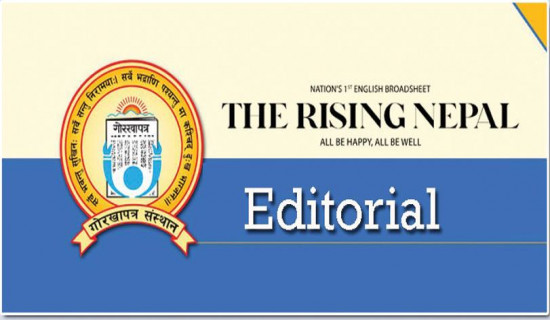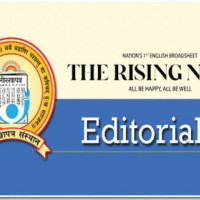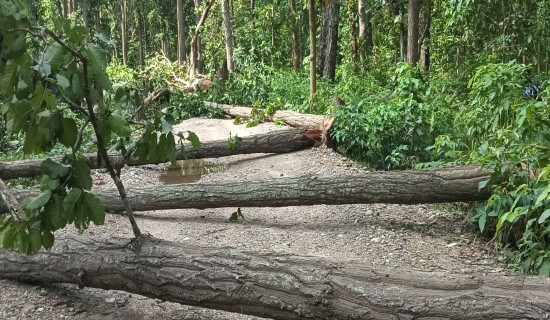- Saturday, 13 September 2025
Stability For Prosperity
Nepal is at a crucial juncture. Plagued by frequent changes of the guards, it is now in the dire need of political stability and policy consistency essential for the economic recovery and overall progress. The Himalaya nation has already endured prolonged political turmoil, which have weakened public institutions, eroded public trust and hindered the economic growth. It is time for the leaders, who pride themselves on leading various political movements and revolutions, to translate their commitment to democracy into action. Instead of constantly changing governments and indulging in the power politics, they must prioritise the nation’s stability without which development and prosperity cannot be attained.
The newly appointed Minister for Home Affairs, Ramesh Lekhak, has expressed commitment to maintaining political stability and good governance. Upon assuming office on Monday, he mentioned the administration’s priorities, including controlling corruption, reviving the economy, and strengthening the federal democratic republic. These are commendable goals that require unwavering dedication and cohesive action from all political leaders. Political stability should not just be a political slogan for it is prerequisite for building a prosperous future.
Stability fosters an environment where businesses can thrive, jobs can be created, and development projects can be executed effectively without interruptions and hitches. For a country like ours, rich in natural resources and immense tourism potential, stable governance could offer unprecedented economic opportunities. With consistent policies, investors both domestic and international will have the confidence to invest in long-term projects, which will help in economic growth and job creation. For the execution of development plans, stability is a must. Over the years, numerous ambitious projects have been launched in Nepal, only to be disrupted by political upheavals in the midway. Infrastructure projects, essential for improving connectivity and boosting trade, are often halted due to changing political tides.
Minister Lekhak’s commitment to good governance and anti-corruption measures is particularly significant. Corruption has been a persistent scourge in Nepal, undermining public trust and diverting resources away from essential services. By addressing corruption head-on and promoting transparency, the government can restore faith in public institutions and ensure that resources are utilised for the greater good. Good governance also means upholding the rule of law, maintaining peace and order, and effectively managing natural disasters — all crucial for a stable society. Another vital aspect highlighted by the Home Minister is the need to review and institutionalise the constitution to enhance inclusiveness and fortify the federal democratic republic system. This is a crucial step towards ensuring that all segments of society feel represented and included in the nation’s governance.
Additionally, implementing age and term limits for top state positions could be prudent. Establishing a clear path of succession can prevent power struggles and infuse fresh perspectives into the political landscape. Such measures could enhance political stability by ensuring leadership. Nepali citizens have long yearned for stability, recognising it as the key to unlocking the nation’s full potential. With the formation of new government having around two-thirds majority in the parliament, it is expected that the nation will see much-desired stability. The leaders of new coalition require building trust with each other and developing coalition culture while taking other political forces into confidence. This is necessary to prevent possible inter- and intra-party bickering as well as socio-political conflicts, which can invite unintended chaos and instability. At the same time, all political actors must rise above partisan interests and work for the collective welfare of the people and nation.
















